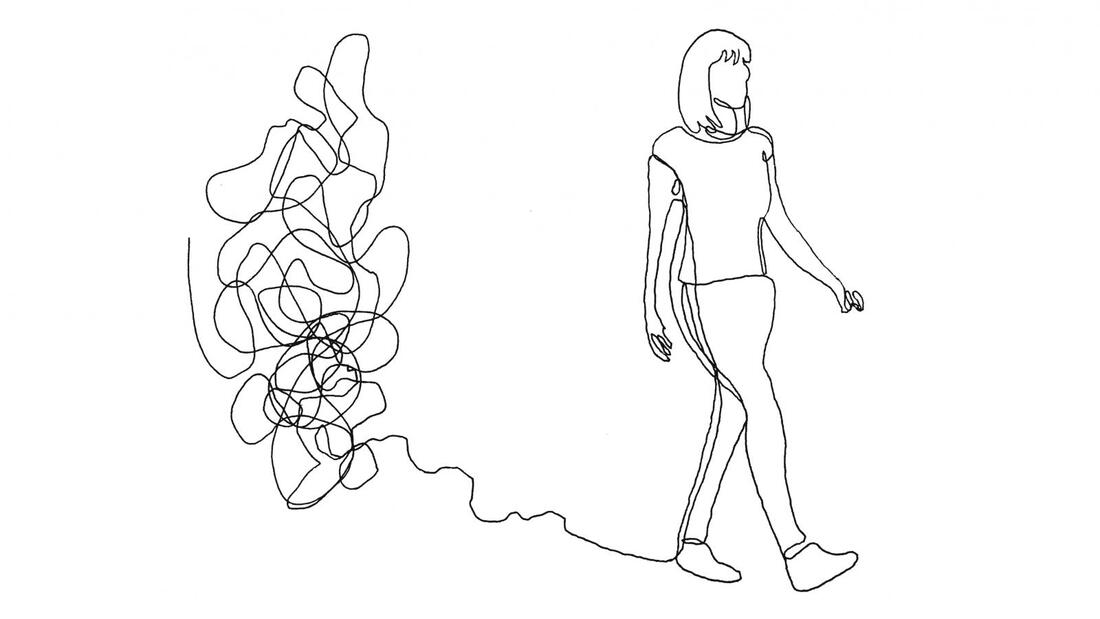|
Cognitive Processing Therapy (CPT) is an effective and brief type of therapy that helps people recover from stressful or traumatic experiences. CPT was developed in the Veterans Administration, but has been researched and shown to work with people who have experienced more than just combat trauma; traumas like sexual assault, car accidents, medical trauma and domestic violence. Dozens of clinical trials have proven its efficacy. Read on for more info about Cognitive Processing Therapy and check out the research here.
Who is CPT for? Cognitive Processing Therapy is an excellent choice for people who have been through a stressful experience and have symptoms of Posttraumatic Stress Disorder (PTSD) (things like flashbacks, negative emotions, and anxiety attacks, difficulty talking about and remembering the experience). CPT is successful with teens and adults alike., and is a structured form of therapy designed to get resutls quickly. Why choose CPT? Cognitive Processing Therapy is a good choice because it is a program that is backed by research proving its efficacy. Initiating a structured form of treatment with an evidence-based therapy model is a smart financial and time management decision for you and your family. Another reason people might choose CPT over other forms of trauma therapy is that CPT doesn't require a lot of exposure or talking about the traumatic event itself. Can CPT be done online? CPT works well in-person or as an online therapy. There are no differences to the treatment when it is conducted online through teleheatlh. Telehealth cuts down on travel time and is a super convenient and safe way to support your mental health needs. Why do I need therapy for trauma? Can't I just get over it? Every single person who has been through a traumatic event needs to talk about and process that experience in some way—that's just the way our brains work! You may have found that talking to your friends and family about your trauma seems too scary, or like it might burden them. Or, talking seems to frustrate you--often friends and family want to "fix" feelings or they struggle with seeing you in pain. Cognitive Processing Therapy helps you explore the thoughts you have about your trauma with the support and guidance of an impartial therapist who can help you stay calm, safe and regulated during the process. A therapist can help you actually think through your questions about what happened, questions like "Was it my fault?", "Why did this happen?", and "What kind of a world is it that this could happen?" Going through trauma can be very morally distressing, and you might need a space that helps you wrestle with that distress so you can come to healthy conclusions about how to heal. Why should I consider Jordan as a therapist? I learned CPT directly from its author and participated in special ongoing supervision with other experienced providers to prove my efficacy in delivering this treatment. Because of my experience and training, the CPT dissemination organization has accredited me as a Quality Rated Provider. I have had the honor of providing CPT to dozens of teens and adults, both in-person and online, and have continued to be amazed by people's capacity to heal from PTSD. It would truly be an honor to walk with you in your healing journey. How long does it take? Cognitive Processing Therapy was designed as a 12-session model, but can be fewer or more sessions to fit an individual's specific needs. Typically, people notice a major reduction in symptoms after the 4th session, and sometimes recovery occurs in as few as 7 or 8 sessions. CPT can be conducted weekly, biweekly, or even daily. Treatment length will depend on factors like the nature of the trauma, the survivor's age and state at the time of the event, and current life stressors. After an initial assessment, we will have a better idea of what the process might look like to meet your unique situation and needs. What if CPT isn't the right fit for me? Together we'll talk about your needs and make a plan for your healing, whether that involves Cognitive Processing Therapy, another form of therapy, or even no therapy at all! I have training in other evidence-based trauma treatments, and as a specialist in this field, I can be a person that helps you to get on the right path towards feeling better. |

Cognitive Processing Therapy is similar to a more well-known type of therapy called CBT (cognitive behavioral therapy), but is different because it targets traumatic stress vs. general anxiety or depression. CPT helps you learn the types of skills that cause CBT to be effective, and then walks you through applying those skills to help your brain process through traumatic events.
|
GET IN TOUCH
Reach out to me today for a free and confidential consultation about how therapy can help you
and your family with the transformation you're seeking.
and your family with the transformation you're seeking.
|
|
phone |
772.218.1109
|
address |
100 E. Linton Blvd. Suite 210 B-1
Delray Beach, FL 33483 |


